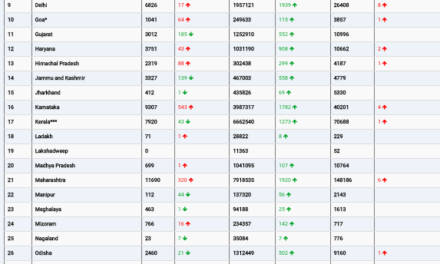June 14, 2024 – A new study by researchers from Penn State College of Health and Human Development and the Center for Healthy Aging reveals that even short-term loneliness can lead to physical health problems. This research sheds light on the nuances of loneliness and its daily effects on well-being, reinforcing the U.S. Surgeon General’s 2023 statement on loneliness as a public health crisis.
Published in the journal Health Psychology, the study underscores the significance of different loneliness experiences, a key focus of the upcoming Loneliness Awareness Week from June 10-16. According to the surgeon general, long-term loneliness increases the risk of heart disease by 29%, stroke by 32%, and dementia by 50% in older adults. Additionally, frequent loneliness is linked to higher rates of depression and other mental health issues.
The current study, however, delves into the effects of short-term loneliness, finding that even those who do not usually feel lonely can experience health symptoms on days when they do. The study involved 1,538 participants from the National Study of Daily Experiences (NSDE), part of the MacArthur Foundation Survey of Midlife in the United States. Participants aged 35-65 reported their daily stress, mood, and physical symptoms, such as fatigue and headaches, over eight consecutive days, twice, ten years apart.
The research revealed that lower average loneliness and lower day-to-day loneliness corresponded with fewer and less severe physical symptoms. Those with more stable loneliness levels over the eight days also reported less severe symptoms.
“These findings suggest that day-to-day dynamics of loneliness may be crucial in understanding and addressing the health effects of loneliness,” said David Almeida, professor of human development and family studies at Penn State and senior author of the paper. “Increasing feelings of social connection even for one day could result in fewer health symptoms on that day. Such a daily focus offers a manageable and hopeful micro-intervention for individuals living with loneliness.”
Lead author Dakota Witzel, a postdoctoral research fellow in the Center for Healthy Aging, emphasized the importance of focusing on temporary feelings of loneliness. “A lot of research is focused on loneliness being a binary trait – either you’re lonely or you’re not. But based on our own anecdotal lives, we know that’s not the case. Some days are worse than others – even some hours,” Witzel said. “If we can understand variations in daily loneliness, we can begin to understand how it affects our daily and long-term health.”
Other contributors to the study include Karina Van Bogart, a doctoral candidate in the Department of Biobehavioral Health at Penn State; Erin Harrington, assistant professor of cognition and cognitive development at the University of Wyoming; and Shelbie Turner, postdoctoral fellow in the Division of Geriatrics and Palliative Medicine at Weill Cornell Medicine.
The research was funded by the National Institutes of Health.












